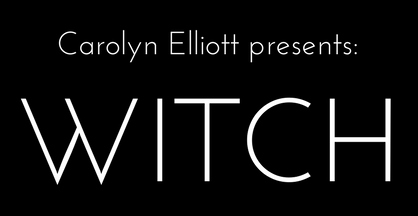by Catherine Winther
It might seem simple if not reductive to state that love heals, right? Wrong. So very wrong.
As such, seeing so many witches (myself included) offering healing by way of loving energies worries me.
Before continuing, it is important to define what ‘love’ is in this circumstance.
In psychology, love is understood as a feeling beyond affection or lust. It is the core emotion that helps us attach and connect with others.
These others are usually family members or friends that we identify as people who really see and accept us; who we feel are kindred spirits.
Love is usually expressed through verbal affirmations, physical touch, gifts, quality time together, and through acts of service or care. It is accompanied with trust and warmth.
There are certain conditions – personality, attachment, emotional, and psychological etc. – that can make it difficult for people to receive loving energy.
However, I won’t single them out. This is because there are often a multitude of mental health issues and other reasons for why a person can’t process love.
Many of these reasons stem from trauma and neglect in childhood.
In short: an inability to work with and process love is not a choice.
Offering swathes of warmth, affectionate touch, and tender words to these people can trigger anxiety and feelings of shame and worthlessness.
When faced with love they will often withdraw because they don’t know what to do or say.
Or worse, they fall back on a script of appropriate words and actions society has taught them to use in response to ‘loving’ situations.
So, for example, they may report the crystal healing, massage, or Reiki etc., has worked when in fact that is just a mask.
These people can sometimes spend years seeking out healers to work with and connect to, only to be left feeling dysfunctional and ashamed for not knowing how to deal with the loving healing they offer.
We are told love fixes and heals everything. We are told to fill ourselves with love and share love with those we care about. Love is this one perfect feeling that unites souls and gives meaning to existence.
Yeah, bullshit.
Love is essential, but it’s not the fairy-tale construct society has fed us.
It may sound heartbreaking and even feel monstrous to know that there are people who struggle with love, but that is based on bullshit understanding too.
These people can be anyone you know. While some people struggle to be happy because of depression, some people struggle with love because of other psychological conditions and various traumas.
As such, being witches and healers, it is our duty to know how to work with people who don’t respond to the typical loving energies e.g., affirmations, warmth, healing words, and touch.
When working with a new counselling client I strive to understand the various ways they experience love. Everyone has their own ‘language’ for love.
We all have a unique way of expressing love and a unique way of processing love. Once you understand how a person experiences love, it is easier to find ways to offer care while formulating healing sessions together.

A good question to ask is: ‘When do you feel most loved? What does that look like?’
This question helps because it’s not ephemeral. It opens up a discussion on real life examples of what love is to them.
A person who struggles with love often responds to a very unique kind of care: shoulder talk.
Shoulder talk is essentially divided attention whereby both people are focused on an external task (building something, walking a dog, cooking, games, art, tarot etc.,) while talking.
Engaging in an activity while talking mediates attention. The divided focus gives them more room to breathe.
They don’t feel so pressured and scrutinized, thus giving them the space they need to comfortably process the care they are getting.
Be mindful, when I say talking this means active listening. By asking meaningful questions and paying tender and genuine attention without judgement, you are conveying a type of love that most people who struggle with love can receive.
There is an art to holding space and paying deep attention to someone without imbuing that space with the usual overarching themes and feelings of warmth and affection, but it is possible… and necessary.
Remember, most of the people who struggle with love have been exposed to abusers who used love as a weapon of abuse.
However, genuine attention is rarely ever weaponized.
In my training years we learned that while it is impossible to be entirely judgement free and objective, you can train yourself to enter a more open mind space where judgement is less likely and acceptance is natural.
This is genuine attention.
We also learned that if we couldn’t enter that open mind space with a client, then we weren’t the psychologist for them.
And that was okay. But it was imperative that we found a fitting referral for them and helped them organize the booking so they didn’t feel abandoned.
Abandonment is a huge trigger for pain in most people, but even more so in people who struggle to understand and work with love.
That is why ego can have no place in being a healer. You need to know when you are out of your depth and act accordingly to ensure the wellbeing of your client.
Attention is love. But we have been conditioned to dress it up in warmth, saccharine affirmations, and largely empty rituals of gift giving etc.
By dressing it down we are able to offer all the care some people can cope with. So, when I say conversation can heal and be alchemy, I mean it quite literally.
I practice Reiki, crystal healing, tarot, etc. So, I know the power of traditional loving energies and how hard it is to avoid falling back on them.
To help you out, here are some examples of a shoulder-talk session I offer.
I sometimes offer a session of tarot where we both shuffle our own decks and work through the various readings together while we talk.
Or, I offer side-by-side sculpturing sessions whereby we each sculpt something small that represents love to us while talking deeply about whatever is ailing them.
These sessions tend to start off quite technical and task focused, but over time warmth creeps in the more we open up.
Introducing warmth into sessions with these kinds of clients demands excellent boundary management, but that’s for another article.
Another method for providing care to people who struggle with the traditional loving energies is via animals.
I have five animals, three cats and two dogs. One of my dogs is a trained therapy dog I used with my clients when I worked as a psychologist.
People who struggle with love often have a unique and enhanced connection to animals. This is because animals were the only beings that could provide for them the vital loving touch needed to survive and grow.
Clients can sit on the floor and roll around with my animals and get all the healing touch they need whilst talking with me, thus providing a well-rounded healing session.
This is another good reason for witches to have familiars and keep them close.
In short, not everyone can receive the kind of love and loving energies witches and healers are used to working with in their sessions.
But, by tailoring your sessions to include genuine attention and presence through shoulder-talk and animals, you can still provide a kind of loving energy that is less typical but just as powerful.
IN CONCLUSION
If this essay resonates with you, please join our WITCH email list by using the forms on this website so we can stay in touch.
About the Author:
dog image by the author, other images from shutterstock

